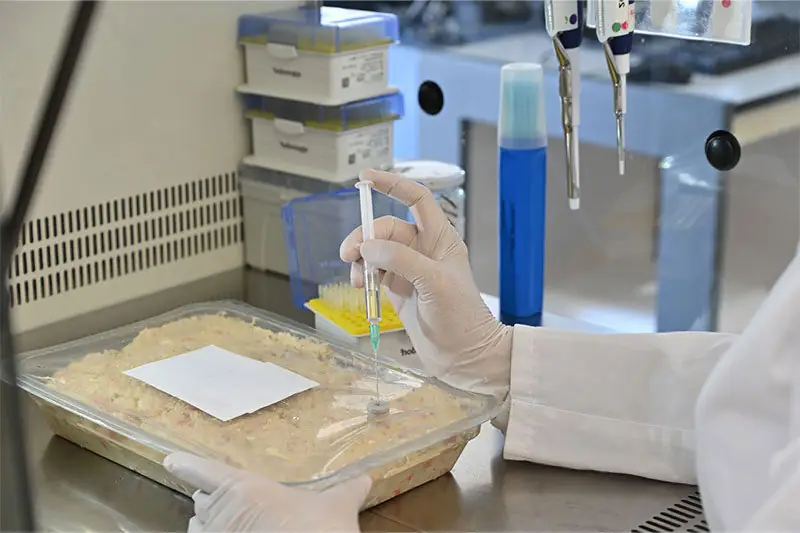Microbiological Quality Testing of Sunscreens
In today’s increasingly health-conscious world, consumers are more aware than ever about the safety and quality of personal care products they use. Microbiological testing is a crucial aspect of ensuring that sunscreens meet stringent standards for microbiological safety. This comprehensive service focuses on identifying potential pathogens in sunscreen formulations to guarantee product safety and compliance with relevant international regulations.
The process begins with the collection of samples from various stages of production, including raw materials and final products. These samples are then processed using advanced laboratory techniques, such as membrane filtration or pour plate methods, which allow for the isolation and identification of microorganisms present in the sunscreen formulations. Our highly trained microbiologists use standardized procedures based on international standards like ISO 8692:1995 and ASTM D3028-17 to conduct these tests.
Once isolated, the samples are identified using techniques such as MALDI-TOF MS (Matrix-Assisted Laser Desorption/Ionization-Time of Flight Mass Spectrometry), which provides rapid and accurate identification of microorganisms. This ensures that any potential contaminants or pathogens can be quickly detected and reported back to our clients. The results from these analyses help manufacturers make informed decisions regarding formulation adjustments, ensuring they meet regulatory requirements.
Our expertise extends beyond just identifying individual strains; we also assess the overall microbiological stability of sunscreen products over time through accelerated stability studies. By simulating real-world storage conditions and monitoring changes in microbial populations, we provide valuable insights into how long a product remains safe for use under various environmental factors.
For clients who require more detailed information about specific microorganisms found within their formulations, our team can perform additional analyses using DNA sequencing technologies. This not only confirms the identity of identified organisms but also helps us understand their potential impact on human health if present in high concentrations.
Applied Standards
- ISO 8692:1995 – Microbiological Examination of Cosmetics: This standard outlines the methods for sampling, preparation, and examination of cosmetic products to ensure they meet specified microbiological quality criteria.
- ASTM D3028-17 – Practice for Sampling and Testing of Liquid Chemical Products by Volume: Although primarily focused on liquid chemical products, this practice provides guidance that aligns well with our testing methods for sunscreen formulations.
Eurolab Advantages
At Eurolab, we pride ourselves on providing unparalleled quality in microbiological safety testing of sunscreens. Our state-of-the-art facilities equipped with cutting-edge technology ensure accurate and reliable results every time. We employ a team of highly qualified professionals who stay updated with the latest developments in both scientific research and regulatory changes.
- Comprehensive Expertise: With years of experience in microbiological testing, our experts offer deep knowledge tailored specifically to meet the unique needs of the cosmetics industry.
- Regulatory Compliance: Our services are designed to comply with global regulations including those set forth by EU Cosmetics Regulation and FDA guidelines ensuring your products remain legally compliant.
- Quick Turnaround Times: Speed is crucial in the cosmetics industry, particularly when it comes to launching new products. We understand this urgency and strive to deliver results within tight timelines without compromising on accuracy or precision.
Environmental and Sustainability Contributions
By ensuring that sunscreens are free from harmful microorganisms, our services contribute positively towards environmental sustainability. Clean products reduce waste associated with recalls due to contamination issues while also promoting better overall health among users of these products.
- Promoting Healthy Oceans: Many consumers choose reef-safe sunscreen options which are designed not only for human safety but also for minimizing harm done to marine ecosystems. Ensuring that these formulations meet rigorous microbiological standards plays a key role in protecting our oceans from harmful chemicals.
- Reducing Waste: By preventing contaminated products from reaching the market, we help reduce the amount of waste generated through product recalls and disposal processes.





